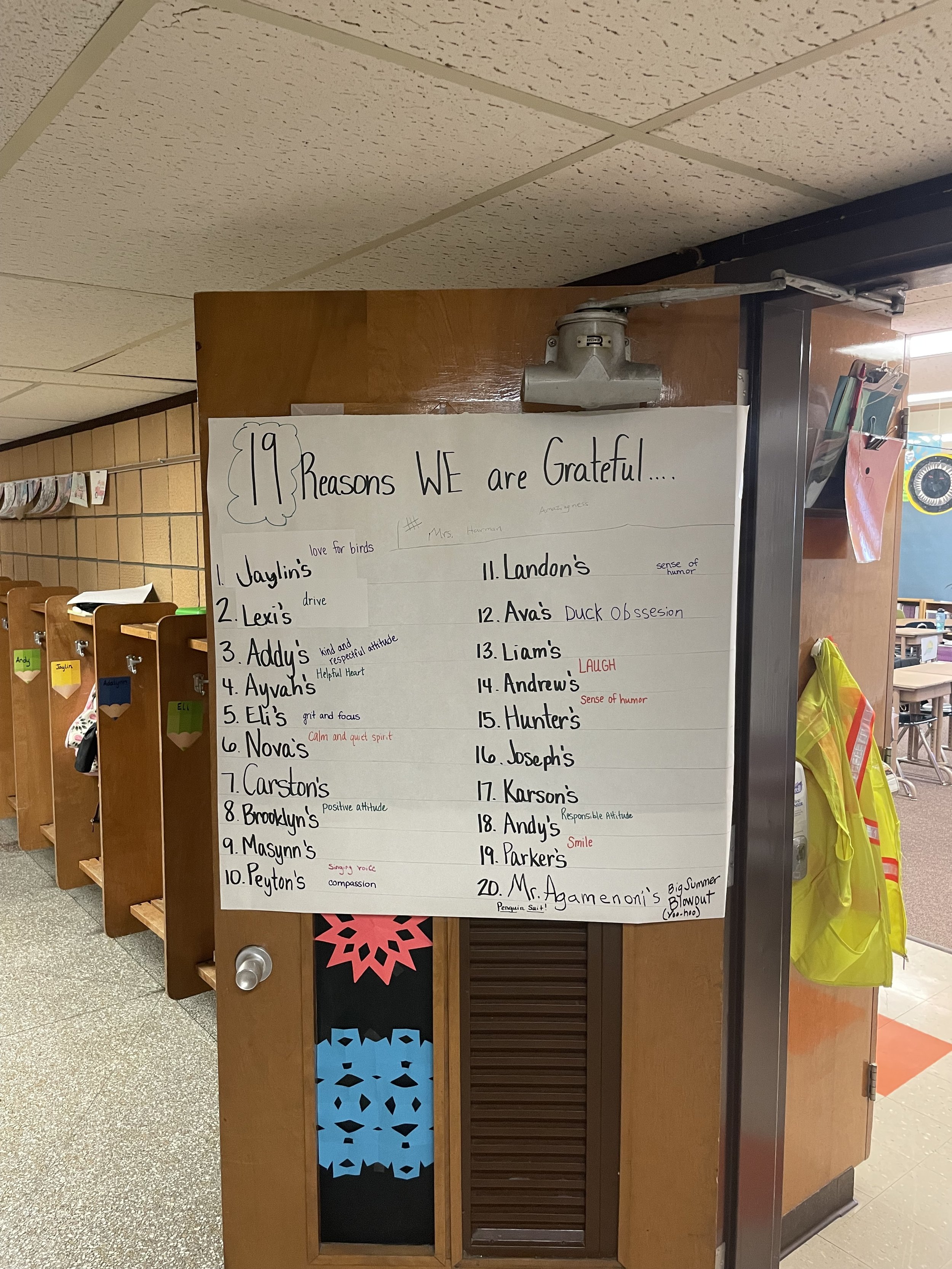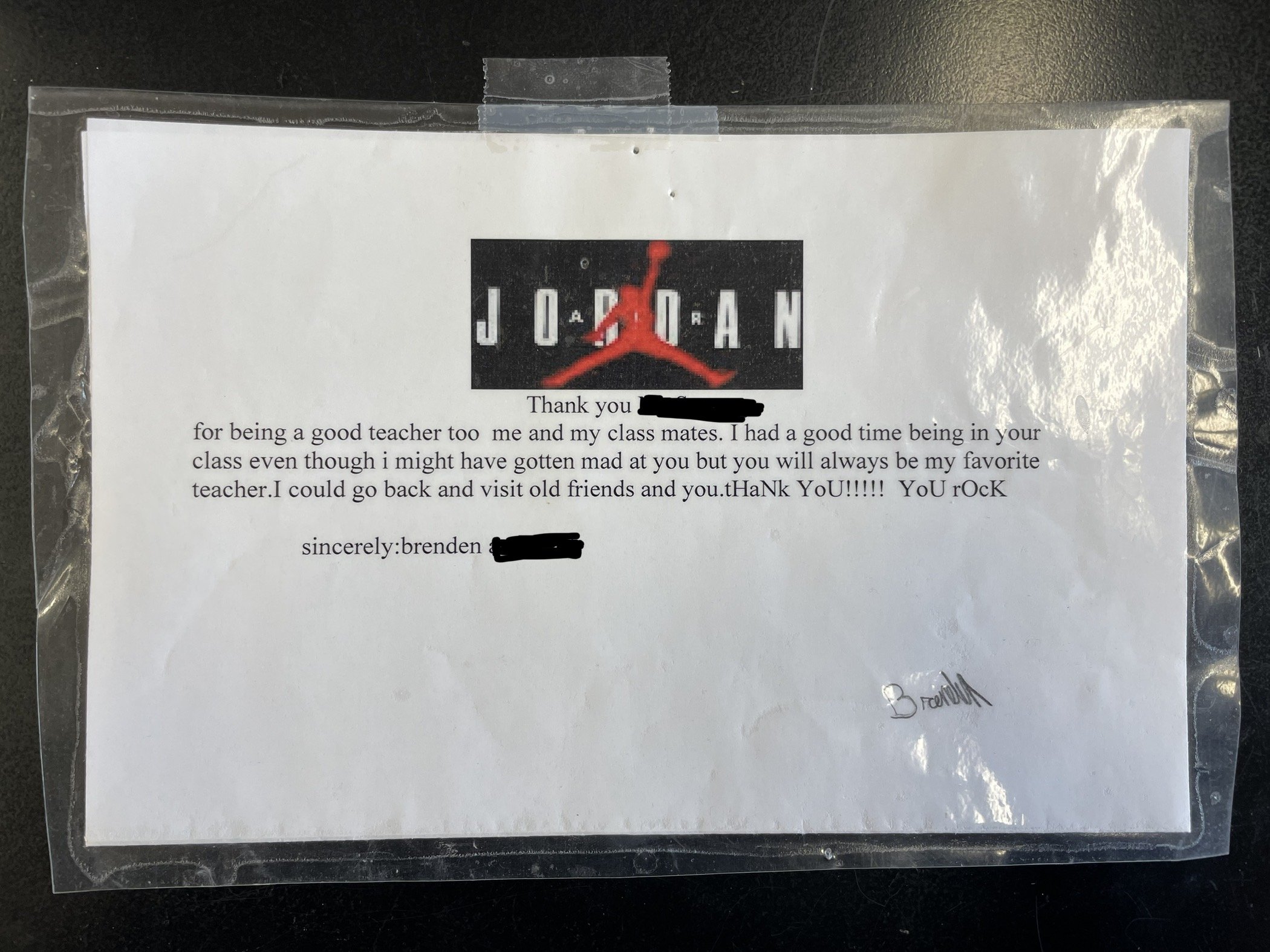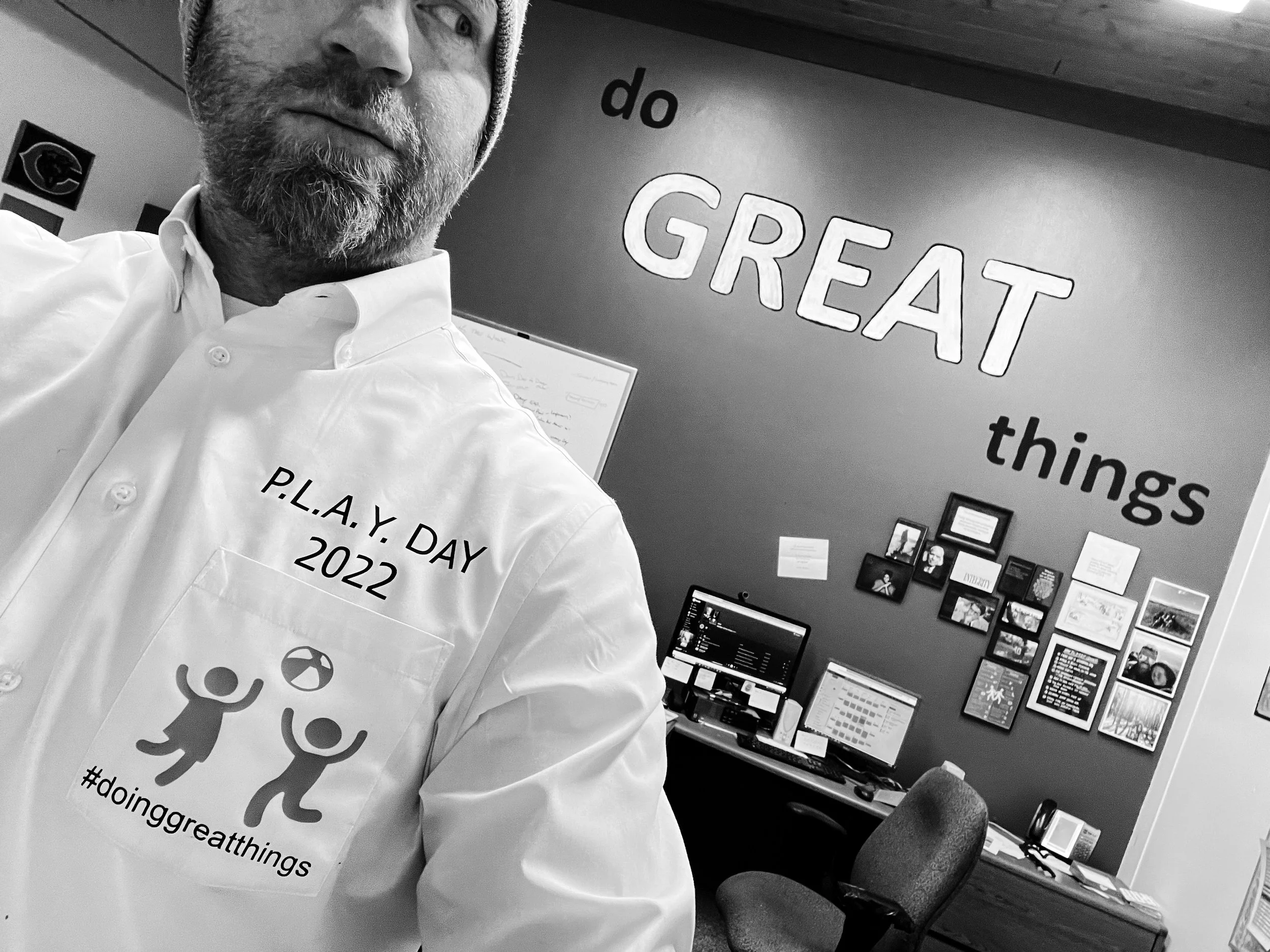In his book, The Road to Character, David Brooks writes about the difference between Resume virtues and Eulogy virtues.
“Eulogy virtues,” he writes, "are the virtues that get talked about at your funeral, the ones that exist at the core of your being – whether you are kind, brave, honest or faithful; what kind of relationships you formed.”
“Resume virtues,” on the other hand, are much shallower. “They are the skills that you bring to the job market and that contribute to external success."
When we pursue our resume virtues, we set out to conquer the world. When we hold tight to our eulogy virtues, we battle for opportunities to serve the world.
And that got me thinking about educators and why we have chosen, and continue to choose, this beautiful profession.
Most educators came into this profession because, at some point, someone spoke into our lives. Because someone took time out of their day to spend time in ours, because they lived a life that inspired us to help, to serve, and to improve the lives of those around us. I bet you are here because someone chose to see beyond their resume virtues and chose to invest in their eulogy virtues.
People who, as David Brooks writes, “radiate a sort of moral joy.”
They answer softly when challenged harshly. They are silent when unfairly abused. They are dignified when others try to humiliate them, restrained when others try to provoke them. But they get things done. They perform acts of sacrificial service with the same modesty everyday spirit they would display if they were just getting the groceries. They are not thinking about what impressive work they are doing. They are not thinking about themselves at all. They just seem delighted by the flawed people around them. They just recognize what needs doing and they do it” (bolding and emphasis added).
Like many, I have ambition. I have dreams and ideas of how I would like my life and career to go, and I work hard to ensure that they will happen. I am constantly working on my resume.
This week, however, I was once again reminded that if I accomplish all that my little heart desires, if I gain all the accolades and can stand on a stage to great applause, it will mean nothing without a strong eulogy resume.
For in the end, that is what this profession - this life - is all about.
That’s what I’ve been thinking about this week.
#doGREATthings!
Give. Relate. Explore. Analyze. Try.
For more on . . .


























